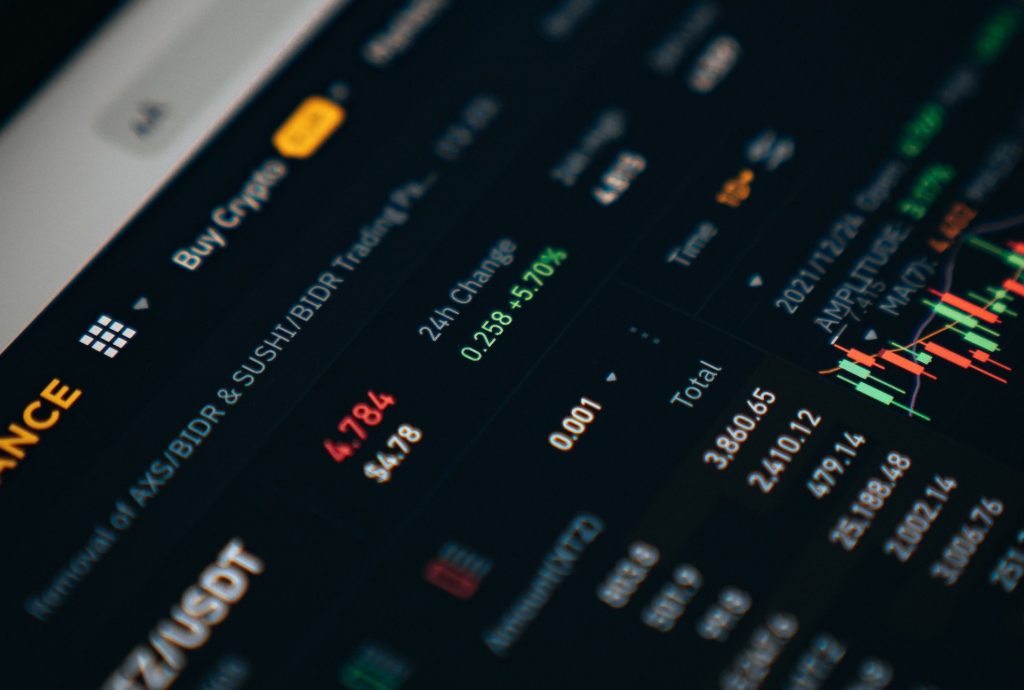Cover photo: Campaign Creators on Unsplash
Today’s Focus of Attention is reader-supported. We sometimes include products we think are useful for our readers. If you buy through links on this page, we may earn a small commission.
What’s the difference between Mutual Funds, Index Funds, and Exchange-traded Funds
Now that I am nearly debt-free, I’m thinking about building a portfolio.
The thing is: invest in what? What are the options out there? I want to grow my money and secure my future.
Buying and renting real estate as well as investing in gold have always been popular choices. Cryptocurrencies are another option, but I’m reluctant to go there due to their volatile nature. AI seems to be an additional good choice, by the way.
So, I started researching, and I came across some interesting options to diversify my portfolio and not have all my eggs in the same basket.

I found information about digital real estate, stocks, bonds, money market, mutual funds, index funds, ETFs, and then I went deeper into knowing more about these alternatives.
In this article, I will share with you what I’ve learnt about these forms of investment, starting with three of the most common: Mutual Funds, Index Funds, and Exchange-traded Funds (ETF)
I’m slowly learning about all these financial subjects. Here are my insights.
Mutual Funds

Mutual Funds date back many years, before Index Funds and ETFs.
The earliest one was created with the purpose of having a group of individuals join forces and make investments together.
Their three major benefits are convenience, diversification, and professional management.
Convenience
With a Mutual Fund, we gain access to many stocks in an all-in-one package with a single purchase since a MF could have hundreds of different stocks in it.
If we lived in a world with no Mutual Funds, and we wanted to own shares in 100 companies, we would have to research a lot to identify the best businesses to invest in, apart from making one hundred separate purchases, which translates into 100 commissions.
Not practical whatsoever.
However, with a Mutual Fund, we get instant ownership of all the shares the fund already has.
Diversification
When we diversify, we reduce the risk of incurring losses.
Let’s say we only own Microsoft stocks. If the value dropped by 2%, we would lose the equivalent amount in our investment. Of course, if the share price rose, we would make more.
Instead of having all our eggs in a single basket, we put them in several baskets, so if one share plunged, we would still be okay because such stock is only a portion of our total portfolio.
That is the point of diversification.
A Mutual Fund typically comprises around 90 stocks, at least. If we tried to find stocks by ourselves, it’d be more expensive, lengthy, and tiring.
Professional Management
Another characteristic of Mutual Funds is that they are managed by “investment professionals”.
This is called active management.
A “knowledgeable expert” is in charge of picking the right stocks to invest our money in, but that doesn’t guarantee it would give us a return.
Drawbacks
Convenience; checked. Diversification; great. But just the fact of having someone handling our property means substantial fees.
As compensation for managing our hard-earned money, this person charges between 1% and 2.5% of our balance every year.
To illustrate, if we invested, say, $20,000 in a Mutual Fund, an average of $400 would go straight into the fund manager’s pocket.
If we knew we could enjoy a healthy return, that wouldn’t be bad.
Unfortunately, even if this “professional” didn’t do a good job investing, we’d still have to compensate for his services. Meaning we could end up with less capital than when we started.
While hunting videos on YouTube, I found some channels leaning towards Mutual Funds saying that for every $100, we had to pay between $1 and $2.5. “Not too much.”
They are right. But they don’t mention the proportion of having 10, 20, or $50,000. That’s the actual figure we should consider.
I’m not suggesting a Mutual Fund is bad; it is a form of investment that works. But in my view, the fees are too high.
Index Funds

Index Funds changed the geography of investing. They were created in the 1970s as an alternative to the high fees charged by Mutual Funds, which were often seen as unfair.
ETFs are passively managed, which means they don’t pay a costly active manager to decide which stocks to buy or sell.
How do Index Funds work?
They follow a fixed formula based on an index, hence the name, mirroring the S&P500 Index, which is one of the most widely followed in the world.
An index is a tool used to quickly measure the stock market’s performance in a day instead of analysing thousands of stocks individually.
As the fund buys any stock in the S&P500, the fees are far lower since we’re not paying anyone to make decisions.
For example, the Vanguard S&P 500 Index Fund charges an annual fee of 0.04%. Others charge even less.
Something I like about Index Funds is that some of them offer automatic reinvestment without any added costs. To illustrate, I can set up a recurring monthly deposit from my bank account, and it will automatically buy more shares for me every single month.
Exchange-traded Funds

ETFs saw the light of day around 30 years ago.
They are quite similar to Index Funds but with a major difference.
We can only buy or sell Index Funds once a day, but we can do it whenever the market is open with ETFs because they behave like stocks, despite the fact that they are not.
One thing I don’t like about Exchange-traded Funds is their tradeability. I’m looking for a long-term investment, but being tempted to buy or sell anytime sends shivers down my spine. For instance, if I see shares going up and down, I might buy or sell on a whim. Too much temptation. I know myself.
As far as I am aware and based on my research, ETFs don’t allow automatic reinvestment like Index Funds do. So, if we wanted to invest more every month, we’d have to do it manually and, of course, pay trading commissions every time.
Summary

Mutual Funds were the first on the scene and offer the benefit of pooled investing, but with high fees.
Index Funds arrived later but carry lower fees and automatic reinvestment.
Finally, ETFs act like stocks and provide the same as Index Funds, except automatic reinvestment.
Before putting money in anything, be it stocks, real estate, or funds, we must research as much as possible since all the options available have their own advantages and disadvantages.
The important point here is to invest, because having cash in a bank only decreases the value of our labour’s fruit.
I hope you find this information useful.
Please leave your comments.


